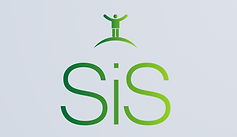Math
Subject Introduction
What is Mathematics?
Mathematics is a universal language relying on a shared understanding of symbols and procedures to communicate ideas efficiently. It is a powerful tool used every day to solve real-life problems. The beauty of mathematics inspires curiosity about our world and the universe. As a subject, mathematics has historical roots in many cultures and continues to evolve in support of innovations. Mathematics involves learning across various disciplines, including arithmetic, algebra, geometry, statistics, and probability. In all disciplines, procedures may range from counting, calculating, and measuring to analyzing, modelling, and generalizing. Engaging with mathematics allows students to develop logical thinking skills, which contribute to effective decision making and problem solving. Students are able to extend their thinking beyond personal experiences through flexible and collaborative learning opportunities. Experiences with mathematics help students develop appreciation for the patterns and relationships that describe multiple aspects of the world and its future possibilities.
Numeracy is a foundational building block of learning and is developed in all subjects in different ways. Central to the development of numeracy, the mathematics curriculum helps students acquire and apply the knowledge and skills necessary to interact with quantitative and spatial information in a variety of situations. Foundational numeracy focuses on counting, comparing, and calculating* with numbers; describing, representing, and measuring shapes and objects; collecting, organizing, and interpreting data; and creating and interpreting diagrams, graphs, and tables. Numeracy skills support real-life pursuits, including telling time, using and managing money, following instructions, finding an address, and reading a schedule. With a focus on numeracy, the mathematics curriculum provides all students with a solid foundation of mathematical knowledge, understanding, and skills to set them up for future success.
Mathematics education is an ongoing process of connecting students’ concrete experiences to their comprehension of abstract concepts. A recognition of numbers and their application to counting and comparing form foundational knowledge and skills for students as they encounter a variety of quantitative information in their lives. The development of these skills supports students as they participate in family, community, and cultural activities. As their experiences broaden, students also learn that operations with numbers provide reliable and efficient options to counting and comparing. Students acquire knowledge of basic number facts that can be applied to addition, subtraction, multiplication, and division of larger numbers using commonly recognized algorithms. Students also communicate using conventional mathematical symbols and vocabulary. As students are exposed to more and varied quantitative information, they learn about different number systems and their applications to various situations, such as decimals for money and integers for temperature. In developing algebraic thinking skills, students transfer their understandings of properties of number to new or abstract problems.
Although mathematics is often considered the study of numbers, it also provides the tools to interpret spatial information in the world. The earliest mathematical experiences of children involve exploration of the space and objects around them. Mathematics provides the foundations for precisely describing, defining, and measuring spatial information. Students will learn geometric properties that relate to and distinguish shapes. They will also develop an understanding of measurement, progressing from direct comparison, to the use of non-standard units of measure, to accurately measuring with various standard units and tools. Examining shapes through measures and calculations of length, area, volume, and angle will allow students to build a broad understanding of spatial information. Students will extend their application of spatial knowledge and skills from concrete to abstract situations, precisely describing location and movement of shapes in a plane. They will develop knowledge of geometric properties, theorems, and formulas to appreciate complex patterns within traditional cultural designs, to solve immediate real-life problems, and to propose innovations.
Throughout the study of mathematics, students apply their foundational knowledge, understandings, skills, and procedures to solve problems. They visualize and reason to move from what is known to what is sought. Thinking logically about a problem, choosing a strategy, reaching a conclusion, and justifying the solution helps students develop confidence in their mathematical thinking and decision making. These processes are reinforced by both literacy and numeracy skills and continue to develop throughout students’ lives to support a wide variety of needs, such as financial literacy.
The foundational knowledge and skills provided by the mathematics curriculum are important contributions to the future success of students. Students will apply abilities in computation, managing information, reasoning, and problem solving in daily life and in future educational pursuits and careers. Mathematics will help students interact in society with confidence and intellectual curiosity. Students will rely on their mathematical knowledge and skills as they continue into adulthood in our interconnected and ever-changing world.
*Note: Learning outcomes in the Mathematics Kindergarten to Grade 6 Curriculum are intended to be achieved without the support of calculators.
The source of the materials is https://new.learnalberta.ca. The use of these materials is done without any affiliation with or endorsement by the Government of Alberta.
